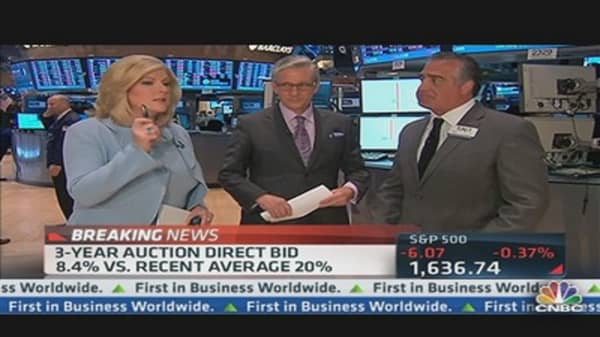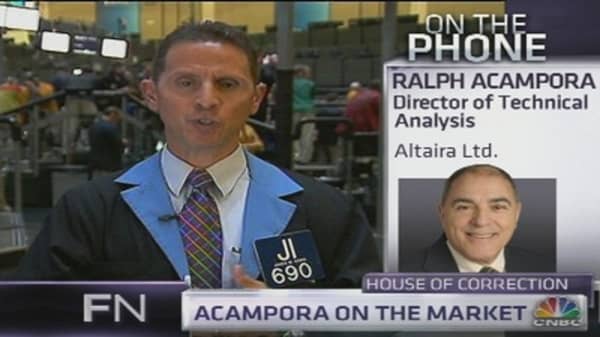Earlier, former World Bank President Robert Zoellik told CNBC that the rolling back of the Fed's asset purchasing program could prove a major issue for countries across the globe.
"[Fed] tapering is a big issue I think for all economies—the U.S., Europe, China, Southeast Asia—the fundamentals still go back to structural reforms," Zoellick said.
Lululemon Athletica plunged more than 15 percent after the yoga apparel maker said its CEO Christine Day will step down. Last week, the company announced that it was starting to get some of its Luon yoga pants back on stock shelves after they were recalled in March for being too sheer.
Texas Instruments declined after the chipmaker released a second quarter outlook that confirmed its PC and notebook sales will be weak this quarter.
(Read More: Texas Instruments Prunes Its Forecast)
Apple ended slightly lower a day after the tech giant unveiled a music streaming service called iTunes Radio and new mobile software at its annual developers' conference.
Meanwhile, Sony and Microsoft released new versions of their videogame consoles at the Electronic Entertainment Expo (E3). Sony edged higher after the Japanese company's PS4 console was priced at $399, undercutting the Xbox One by $100.
(Read More: Pow! Pow! Pow! EA Launches 11 New Games)
Sprint Nexte rallied after Japan's SoftBank said it was raising its offer for U.S. mobile operator to $21.6 billion. Paulson & Co, Sprint's second biggest investor, said it would vote in favor of SoftBank's improved offer.
On the economic front, wholesale inventories rose 0.2 percent in April, according to the Commerce Department, in line with expectations. Inventories are a key component of gross domestic product changes. Excluding autos, inventories were flat.
Treasury prices weakened after the government auctioned $32 billion in 3-year notes at a high yield of 0.581 percent. The bid-to-cover, an indicator of demand, was 2.95.
—By CNBC's JeeYeon Park. Follow JeeYeon on Twitter: @JeeYeonParkCNBC





